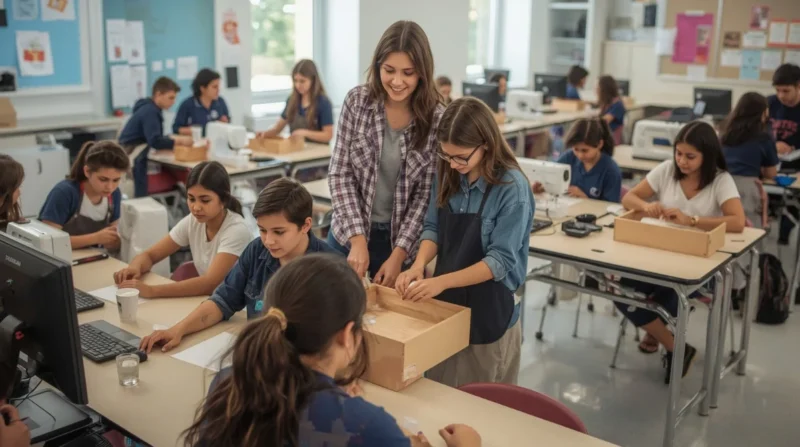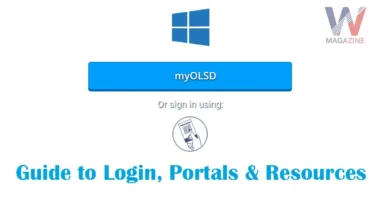Table of Contents
- What is Technology and Livelihood Education?
- Key Learning Areas in TLE.
- Why Technology and Livelihood Education is Important
- Skills Developed in Technology and Livelihood Education
- The Role of Technology in Livelihood Education
- Preparing Students for the Future
- How Parents and Schools Can Support TLE?
- Conclusion
Technology and livelihood education is an important subject that prepares students with practical knowledge and skills they can use in real life. This subject, often called TLE, introduces different areas like home economics, agriculture, industrial arts, entrepreneurship, and information and communication technology. It aims to help learners become productive, resourceful, and creative individuals who can contribute to their communities and gain skills for earning a living.
What is Technology and Livelihood Education?
Technology and livelihood education are part of the school curriculum in many countries. Its main goal is to train students in practical and hands-on skills that help them earn an income or apply for work. Unlike other subjects that focus mostly on theory, TLE blends knowledge with real-world practice. Students may learn to sew, cook, grow crops, do simple repairs or use computer software for office work. These abilities give students a strong foundation for future careers and help them understand the value of hard work and creativity.
Key Learning Areas in TLE.
Students who take technology and livelihood education get to explore different practical areas that suit their interests and talents. Some important areas include.
Home Economics
Teaches skills like cooking, food safety, sewing clothes, housekeeping, and home management.
Agriculture
Introduces farm work such as crop-growing, gardening, poultry raising, and fish farming.
Industrial Arts
Develops practical skills like woodworking, metalworking, and electrical repairs.
Entrepreneurship
Encourages students to develop small business ideas and understand basic marketing and money management.
Information and Communication Technology (ICT)
Covers computer use, word processing, spreadsheet making, internet basics, and more advanced computer skills.
Why Technology and Livelihood Education is Important
This subject is vital because it connects students to real-world experiences. Here are a few reasons why technology and livelihood education matter.
- It builds practical knowledge that can help students earn extra income or become self-employed.
- It enhances creative thinking and problem-solving skills as students do hands-on tasks.
- It prepares students for the job market by teaching them skills that employers value.
- It improves confidence because students practice real-life tasks that they can apply immediately.
- It encourages entrepreneurship so that learners can explore business options early in life.
Skills Developed in Technology and Livelihood Education
While studying TLE, students gain important skills that last a lifetime. Some of these include
- Communication skills are learned through group work and sharing ideas.
- Time management is practiced during school projects and activities.
- Budgeting and money skills are learned in small business lessons.
- Technical skills gained from working with tools, machines, and computer software.
- Critical thinking is developed by solving problems during hands-on tasks.
The Role of Technology in Livelihood Education
With rapid changes in the world of work, technology plays a huge part in TLE. Students can now use computers, digital tools, and the internet to help them improve their work. For example:
- Learning simple design software can help with marketing and product labels.
- Studying online business basics prepares students for e-commerce.
- Learning to use machines or tools with safety and care improves their productivity.
Technology also makes learning easier and more engaging. It lets students explore new skills and connect with other learners and professionals online.
Preparing Students for the Future
One of the main goals of technology and livelihood education is to prepare students for future careers. Whether they want to work after school or plan to go to college, TLE gives them a head start. Many of the skills learned in TLE can lead to.
- Job opportunities in small businesses and workshops.
- Further education in technical and vocational courses.
- Starting their own home-based businesses, like food selling or repair services.
- Developing discipline and independence as they manage tasks on their own.
How Parents and Schools Can Support TLE?
Support from parents and schools is very important for students’ learning technology and livelihood education. Parents can encourage their children by showing interest in their projects and even doing simple home tasks together. Schools can also improve TLE classes by.
- Updating teaching materials and tools.
- Inviting guest speakers or professionals from the industry.
- Providing hands-on workshops and school fairs so students can show their talents.
- Creating opportunities for learners to earn a small income by selling handmade products.
Conclusion
Technology and livelihood education is much more than a school subject. It is a way to help students discover their talents, gain confidence, and prepare for a bright future. By teaching practical skills like cooking, computer use, entrepreneurship, and more, TLE sets students up for success both at school and in their future careers. The hands-on knowledge they gain will help them become more responsible, independent, and capable people who can contribute to their families and communities.









